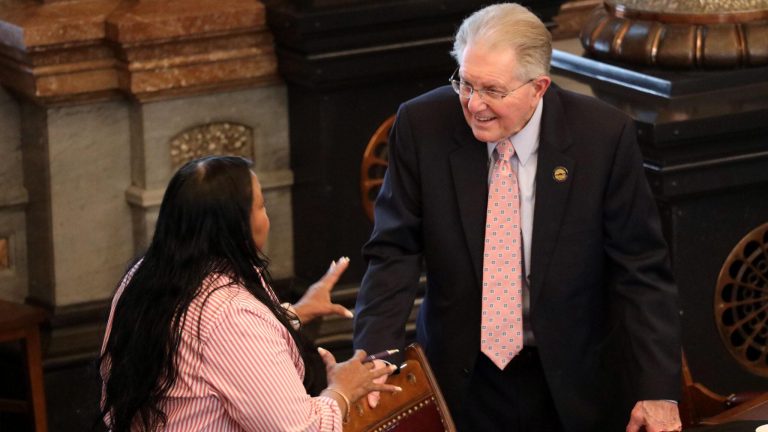
Rejected by Ivy League, Teen CEO Sparks Education Debate | Image Source: www.entrepreneur.com
NEW YORK, 7 April 2025 – The season of university admissions has always inflamed emotions, but this year, it hit a field of fever thanks to the story of Zach Yadegari – an 18-year-old high school student from Roslyn, New York, who built a $30 million technological startup, to be rejected by almost all the higher-level universities he requested. Despite a perfect GPA of 4.0, a score of 34 ACTs and a startup generating millions of annual revenues, Yadegari received 15 rejection letters from elite universities such as Stanford, Harvard, MIT and Yale. The shock? It was not only his academic history that seemed almost perfect – it was his dead end in the real world that was far beyond that of most adult professionals.
As TechCrunch and The New York Post reported, Yadegari’s story became viral after publishing his experience of academic rejection and personal essay on X (before Twitter), quickly amassing more than 27 million views. The adolescent society, Cal AI, an application that uses artificial intelligence to analyze food images and instantly calculate calories and nutrient content, had obtained more than five million downloads within eight months of launch, generating $2 million per month in revenue. It’s a great feat, especially for a high school student. However, releases raised a viral issue on the Internet: Is university always the best way to succeed?
The summary that should have opened the doors
At nominal value, the Yadegari app reads like a dream. A high GPA, a high percentage of standardized tests and a successful wild business. His business trip started at the age of 7, when he started coding. When I was ten, I taught others. For 12 years, he had his first app on App Store. Cal AI, its most performing company, has a 4.8 star rating in the Apple App Store and Google Play, with over 80,000 reviews per platform. It could be assumed that these achievements would be abandoned with university admission officers. But apparently they didn’t.
Despite her candidacy at 18 universities, she was rejected by 15 universities, including all Ivy League institutions and other high-level schools such as Stanford, MIT and Duke. Only Georgia Tech, the University of Texas and the University of Miami offered him admission. ”I didn’t expect to be accepted in all these schools,” Yadegari told the New York Post. “However, he expected at least to be accepted in some of the best schools he applied for
Why was he rejected?
That’s about a million dollars, or rather 30 million dollars. While many praised Yadegari’s achievements, others noted his academic essay as a possible red flag. In his personal statement he shared online, he reflected on his initial rejection of higher education and his possible awareness that “individuality and connection are not opposed, but complementary.” He expressed the desire to learn from colleagues and teachers – to grow through collaboration, not just solo innovation.
However, critics said that the essay could have painted it as someone unlikely to stay for four years. One X user commented, “The personal statement indicates that you are a high probability of leaving, so they gave your place to someone who really wants to get a university degree.” This feeling, echoing by more than 20,000 tastes, is in greater tension: universities can be looking for taxpayers for their community, and not just future unicorn founders. According to academic admissions expert Christopher Rim, the essays must “get who is the candidate beyond achievements and how they will only contribute to academic life.”
Do colleges underestimate entrepreneurship?
This has given rise to a much broader debate: are traditional university admissions out of touch with modern definitions of success? According to Common App data, university applications have increased, with 1.2 million high school students submitting 6.7 million applications this year. The process has never been more competitive and the criteria have never been more opaque. Ivy-Plus schools, a term that covers the Ivy League, MIT, Stanford and others, have seen volumes of triple applications over the past 20 years.
With such fierce competition, admission officers are forced to make difficult calls. And while entrepreneurship can impress the public, it is not always aligned with what universities prioritize. Yadegari’s theory is that admission offices place more emphasis on conventional extracurricular volunteer work than commercial businesses in the real world. “Business construction and job creation don’t seem to be as high,” he said. But should it be? It’s the heart of online speech.
What does the online reaction tell us?
The online community has been divided. Some view Yadegari’s rejection as a failure of the system. Others argue that it was fair. One X-user suggested, “Honestly, is it even university for startup founders? The skills you need are not found there.” Another encouraged him to “consider his destiny for having given the ball of so-called elite universities.” Conversely, some accused their attempts to be arrogant or derogatory. The controversy lies not only in the outcome of admissions, but also in what it symbolises: a possible disconnection between academic institutions and the reality of business.
Many see Yadegari as the emblem of a new generation, which does not expect permission to innovate. He’s not alone. The stories of teenagers starting six-digit companies or building successful start-ups in high school are becoming increasingly common. And yet, the university system, by design, is not necessarily built to recognize or adapt this type of trajectory. Its parameters – GPA, test scores and carefully cured extracurricular scores – can feel outmoded in a world where a teenager can start a business that reaches millions.
Why does someone with $30 million still want to go to college?
Q: If Zach Yadegari is already a millionaire, why go to university?A: Yadegari says they are not academics – this is the connection. He wants to establish relationships, meet people outside his business circle and explore new ideas. As he told an X user, “My motivation to go to college is just to have a social life. “
Q: Do universities underestimate entrepreneurship?A: It seems that way, at least in the case of Yadegari. Despite the construction of a company that created jobs and served millions of people, its commercial success was seen as a risk, especially if it suggested that it leave before graduation.
Q: Could this cost you your personal statement?A: Maybe. According to some critics, his essay lacked humility and did not demonstrate convincingly why he cared about the university. The admission officers could have seen this as a red flag.
Q: Are elite universities out of touch with modern success?A: That’s the question the Internet is asking now. At a time when coding skills and digital companies can compete with the value of degrees, institutions may have to rethink how they assess candidates.
Lessons learned from a generation in transition
Yadegari’s story is not just a candidate; It’s a generational change. An increasing number of young people are questioning the traditional way of university. Some opt for camps, apprentices and entrepreneurship. The idea that university is a unique path to success is being reassessed, especially in an economy where technological skills, creativity and noise often count more than diplomas.
However, this does not mean that the university is obsolete. Many still find value in the structure, mentoring and social opportunities it offers. Perhaps what needs to evolve is how institutions understand and appreciate other forms of success, especially those rooted in the impact of the real world. Yadegari’s history is a call to attention, not only for universities but also for society in general.
In many ways, the university admission system is playing with a world that has already changed. The next generation is not waiting for degrees to start building the future. And maybe it’s time for universities to recognize it.
As for Zach Yadegari, the future is open. If you decide to stay in Georgia Tech, go directly to Cal AI, or take a completely new path, one thing is clear: success is not defined by acceptance letters.



